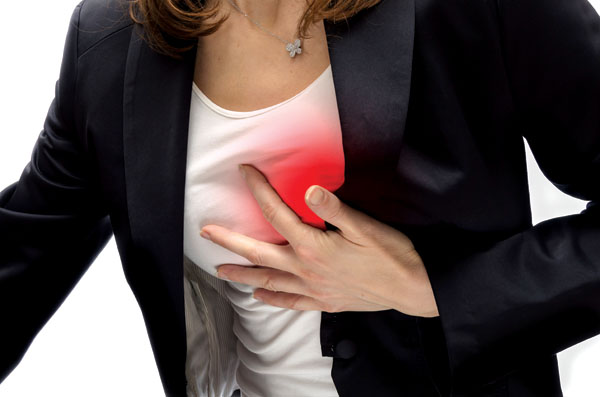Several industry leaders discuss the causes for rise in CVDs and the preventive measures that can be employed for prevention of the same

Dr Sandeep Sewlikar, Head, Medical and Scientific Affairs, Roche Diagnostics India said, “I firmly believe heart well-being is at the core of all health. Unfortunately, new daunting challenges in heart diseases are on the horizon in a scale not anticipated before. Heart failure(HF) is a chronic and silent disease-causing, not just debilitating personal quality of life but significant damage as a public health epidemic. Estimates suggest it will affect as many as 25 million individuals worldwide by 2030. HF makes a deep dent in hospital resources and personal finances.”
He further speaks about the diagnosis of HF is challenging due to non-specific and ambiguous symptoms. “Inaccurate or missed diagnosis can lead to seriously adverse consequences. A simple and objective blood test for heart failure patients is natriuretic peptides such as NTproBNP test. It can accurately measure heart failure disease progression and help doctors diagnose and treat patients personalised to heart stress levels. Since every patient is different so should be their treatments,” Dr Sewlikar added.

Dr Partap Chauhan, Director, Jiva, a trusted name in Ayurvedic healthcare consultation commented on the causes for increase in CVDs, “The heart is vital for survival, but a ‘healthy heart’ is imperative for a happy and fulfilling life. Pollution is definitely a factor that can worsen or create new cardiovascular diseases, but there are bigger culprits. Stress, sedentary lifestyle and unhealthy diets have caused heart diseases even in people who reside in areas with low pollution. These can be easily mitigated by following Ayurvedic principles of Dinacharya and Sattva (Sattvic diet as well as Sattvic lifestyle). Practising Pranayama for 20 minutes every morning will increase your Prana energy and reduce stress.
Speaking about holistic treatment of cardiovascular diseases, he further said, “Ayurveda takes a 360-degree approach. In addition to detoxifying, strengthening and rejuvenating the physical heart, Ayurveda also works on the mental, emotional and spiritual aspects which are seated in the Anahata Chakra – the same space occupied by the heart.”

Dr Zainulabedin Hamdulay, Director of Cardiothoracic and Vascular Surgery, Global Hospital Mumbai spoke about the expensive heart treatment and how crowdfunding is helping bridging gaps for patients who can’t afford treatment on their own. “In reality, many medical procedures are quite expensive because of the intricacies, and even equipment involved for the specialised care required. Although medical care is crucial for heart-related diseases, the funds required often become an impediment to treatment. Over the past few years, we have seen crowdfunding bridging that gap (at least to some extent), making healthcare in critical cases like heart diseases accessible to people. An urgent need to save the life of a loved one or our own gives people very little time to explore options, to make necessary arrangements, or even to simply cope with the difficult situation. During such times, money is one of the biggest issues.”

Dr Praveen Kulkarni, MD, DM(Cardiology), interventional cardiologist at Global Hospitals shared his insights on this day, “In today’s times , the number of people with cardio vascular diseases has increased enormously. They are believed to be the leading cause of deaths globally. Various factors like smoking, diabetes,a sedentary lifestyle, pollution, high blood pressure and ignorance towards stress contribute to this. The government has already taken up initiatives like the India Hypertension Management Initiatives to create awareness around cardiovascular diseases but more things can be done in order to curb the issue. Most cases can be brought under control with a change in lifestyle. Lifestyle recommendations include quitting smoking, eating a healthy diet, and exercising regularly.”
- Advertisement -



Comments are closed.